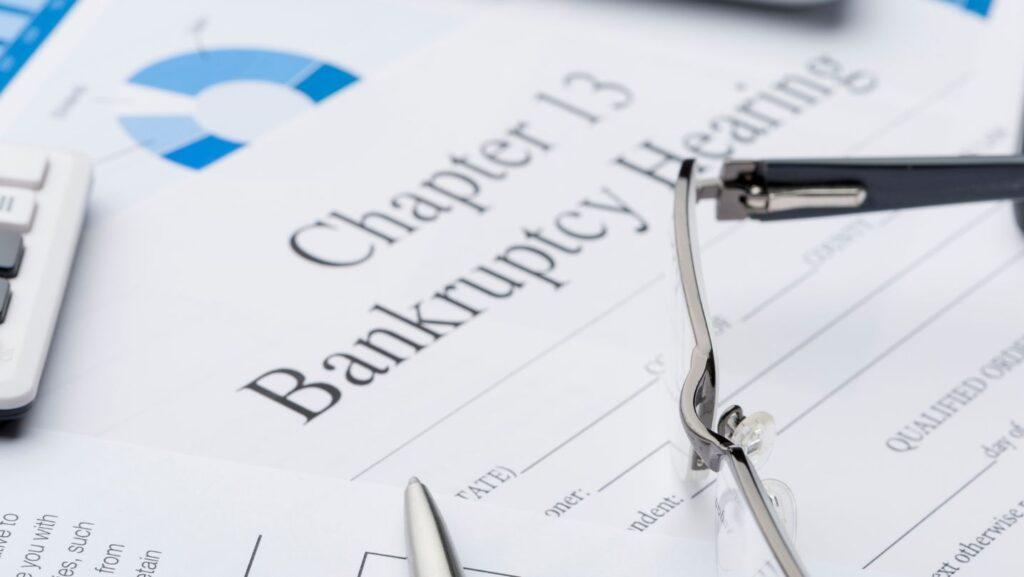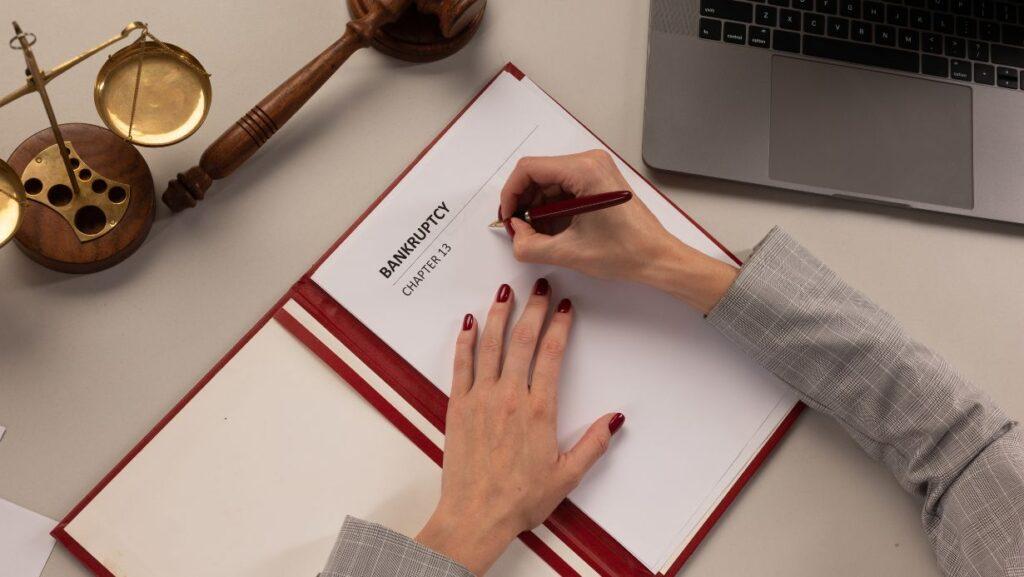Chapter 13 bankruptcy can help people who have a lot of debt and money problems. It is a legal way to pay back some of the debt over a few years. It also lets them keep their things, like their house or car. But Chapter 13 bankruptcy is not easy to do by yourself.
The laws are complicated and the process has many steps. That is why you need a good bankruptcy lawyer to help you. A lawyer can make sure you do everything right and get the best results. In this article, we will explain everything about Chapter 13 bankruptcy.
First, we will talk about how much a lawyer costs. Next, we will tell you why a lawyer is important. Then, we will give you some tips to make good decisions during this hard time.

What is Chapter 13 Bankruptcy?
Chapter 13 bankruptcy is a debt repayment plan that allows individuals to reorganize their debts and create a manageable payment plan over three to five years. Unlike Chapter 7 bankruptcy, where assets may be liquidated to settle debts, Chapter 13 offers a more flexible approach, allowing debtors to keep their assets and reorganize their financial obligations.
By working with a bankruptcy trustee, debtors can propose a plan to repay all or part of their debts based on their income and reasonable living expenses. The court then reviews and approves the plan. Then the debtor makes regular payments to the trustee, who distributes them to creditors accordingly.
The Role of a Lawyer in Chapter 13 Bankruptcy
Navigating the bankruptcy process can be overwhelming for debtors due to its complex nature and the stringent requirements involved. This is where a knowledgeable bankruptcy lawyer plays a pivotal role.
A bankruptcy lawyer possesses specialized knowledge of bankruptcy laws, court procedures, and the intricacies of Chapter 13 cases. By hiring a lawyer, debtors gain access to expert guidance that can significantly improve their chances of a successful bankruptcy outcome.
A lawyer assists debtors in preparing and filing the necessary paperwork, including the Chapter 13 repayment plan. They advocate on behalf of the debtor during court hearings and meetings with creditors. They are also ensuring the debtor’s rights are protected throughout the process.
A lawyer can help debtors understand their options, negotiate with creditors, and address any potential legal challenges that may arise during the case.
Understanding Lawyer Fees for Chapter 13 Bankruptcy
The cost of hiring a bankruptcy lawyer for Chapter 13 varies depending on several factors. Some common factors that influence attorney charges include:
- Experience and Expertise: Seasoned lawyers with extensive experience in bankruptcy law may charge higher fees due to their specialized knowledge and track record of successful cases.
- Complexity of the Case: The complexity of a debtor’s financial situation can impact the time and effort required to prepare the bankruptcy petition and repayment plan, which may influence the lawyer’s fees.
- Geographical Location: Legal fees can also vary based on the geographical location of the bankruptcy lawyer. Lawyers practicing in major cities or high-cost areas may charge higher fees compared to those in smaller towns or regions with a lower cost of living.
Fee Structures Employed by Bankruptcy Lawyers:
Bankruptcy lawyers may employ different fee structures based on their individual preferences and the specifics of the case:
- Hourly Rates: Some lawyers charge an hourly rate for their services. This means the debtor will be billed based on the number of hours the lawyer works on their case. This fee structure is commonly used for cases with uncertain complexity or extensive legal work.
- Flat Fees and Package Deals: Lawyers may offer flat fees for handling specific parts of the bankruptcy process. They are preparing and filing the bankruptcy petition. Some lawyers may also offer package deals that cover the entire bankruptcy process, from filing to the discharge. Flat fees provide debtors with clarity and predictability regarding the total cost of legal representation.
- Retainers: Some lawyers may require a retainer, which is an upfront payment to secure their services. The retainer amount can vary based on the lawyer’s rates and the complexity of the case. As the lawyer works on the case, they will deduct their fees from the retainer until it is depleted.
Average Costs for Chapter 13 Representation
The cost of hiring a bankruptcy lawyer for Chapter 13 can vary widely, depending on the factors mentioned earlier. On average, debtors can expect to pay several thousand dollars for legal representation in a Chapter 13 case. While this may seem like a significant expense, it is essential to consider the potential benefits of having a skilled lawyer on your side.
Having a lawyer in a Chapter 13 case can help debtors secure more favorable terms in their repayment plan, potentially reducing the total amount of debt to be repaid. A lawyer can protect the debtor from aggressive creditors, represent them in court, and ensure that their rights are upheld throughout the process.
Potential Additional Costs and Expenses
There are other expenses that debtors should be aware of when filing for Chapter 13 bankruptcy:
- Court Filing Fees and Administrative Expenses: When filing for bankruptcy, debtors are required to pay court filing fees, which can amount to several hundred dollars. There may also be additional administrative expenses related to document preparation and case administration.
- Credit Counseling and Debtor Education Course Costs: Before filing for bankruptcy, debtors must complete credit counseling and debtor education courses. These courses are designed to provide financial education and are essential for obtaining a bankruptcy discharge. The fees for these courses can range from $50 to $100.
- Appraisal and Valuation Fees for Assets in Chapter 13: Debtors may need to obtain appraisals or valuations for their assets, such as real estate or valuable personal property. These valuations can impact the overall cost of the bankruptcy case.
Negotiating with Your Attorney
Most bankruptcy lawyers offer an initial consultation, where debtors can discuss their financial situation and the details of their case. This meeting is an excellent opportunity for debtors to negotiate lawyer fees and explore potential payment plans or fee arrangements.
Some lawyers may be open to negotiating their fees based on the complexity of the case or the debtor’s financial circumstances. Open communication and transparency are essential during these discussions to ensure both parties understand the terms of the legal representation.
Exploring Alternatives to Full-Service Representation
For individuals with limited financial resources, there are alternative options for obtaining legal representation:
- Limited Scope Representation: Some bankruptcy lawyers offer limited scope representation, which allows debtors to hire them for specific tasks within their bankruptcy case. For example, a debtor may choose to hire a lawyer only for document preparation or representation in court hearings. This option can be cost-effective for those with limited financial means.
- Pro Bono and Low-Cost Legal Options for Debtors: Some legal aid organizations and pro bono programs provide free or low-cost legal services to qualifying low-income individuals. Debtors facing severe financial hardships may explore these options to obtain professional legal guidance without incurring substantial fees.
- Self-Representation (Pro Se): While hiring a lawyer is strongly recommended for Chapter 13 cases, some debtors may opt for self-representation to save on legal fees. Proceeding pro se requires a thorough understanding of bankruptcy laws and court procedures. Debtors choosing this route should carefully consider the risks involved and be prepared to invest significant time and effort into their case.
Understanding the Value of Decoding Lawyer Charges in Chapter 13
Understanding lawyer charges is a crucial aspect of navigating Chapter 13 bankruptcy successfully. By being aware of the potential costs and exploring the various fee arrangements, debtors can make informed financial decisions that align with their circumstances.
Legal representation can impact the outcome of a bankruptcy case, providing debtors with valuable guidance, protection of their rights, and increased chances of achieving a favorable resolution.
Chapter 13 bankruptcy presents an opportunity for individuals burdened by debt to find relief and embark on a path to financial recovery. Partnering with a skilled bankruptcy lawyer can significantly increase the chances of achieving a successful outcome. By understanding lawyer fees, exploring alternative representation options, and conducting thorough research, debtors can make informed decisions to navigate their Chapter 13 case effectively. The path to financial stability and a brighter future lies in empowering debtors to seek professional guidance and make strategic choices throughout the bankruptcy process. With the right legal representation, individuals can embrace the promise of Chapter 13 bankruptcy and emerge from their financial challenges with renewed hope.
Continue Reading: How Long Can Lawyers Hold Your Settlement Check? Understanding a Lawyer Retainer






